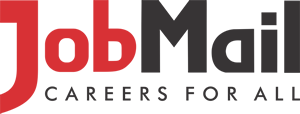New Media Lawyering 101: What are your Social Media Rights?
 Introduction: So what exactly are your rights when it comes to New Media Law? Law and legal requirements have changed at a drastic speed, possibly at a similar pace to the rate at which Facebook is progressively growing online.
Introduction: So what exactly are your rights when it comes to New Media Law? Law and legal requirements have changed at a drastic speed, possibly at a similar pace to the rate at which Facebook is progressively growing online.
This begs the question, that surely, an employee defaming you on their Facebook page is not legal – or is it? The rate at which Social Media and the social evolution has taken shape in and every one of our lives it is not really clear as to what our legal rights are when it comes to intellectual property, defamation of character and defaming on public spheres.
Job Mail decided to ask a local New Media Lawyer for advice on Social Media Employer Rights. We are pleased to introduce you to Paul Jacobson, a Web and Digital Media Lawyer from Jacobson Attorneys and web.tech.law. Paul focuses on the intersect between the social Web and the law and has a firm grasp of and actively uses a number of social media platforms and tools. He is particularly interested in open content licenses, privacy and protection of personal information, reputation management and freedom of expression on the Web.
Please read the below interview to learn more about your Social Media Employer Rights from the expert himself:
(1) What constitutes defamation of character on social spheres and how does one fight such a case?
Defamation on the social Web is the same as it is generally. It basically amounts to the reputational harm a person suffers as a result of some published or disseminated material by someone else. Defamatory material can be justified in some circumstances so its often not just a simple matter of establishing reputational harm in order to establish legal liability.
(2) Paul, what advice would you give an employer in the following situation: An employee resigns from a firm and defames the company publically on his/her Facebook wall and several work colleagues join in on the company bashing?
This is a tough one. There are many cases of defamed people taking action against their attackers and emerging worse off than they were before, primarily because of the Streisand Effect (a phenomenon which boils down to increased reputational harm because you focus more attention on the original complaint by taking action against the attacker). One option may be to report abuse to Facebook and try have the employee’s profile shut down. Another option may be to try and engage with the former employee. There are other options but where the attacks are having a real impact on the business it is advisable to take advice from reputation management experts.
(3) When an employee resigns from a firm and starts copying all the company information onto memory sticks/ CD’s, what are the employer’s rights?
This is a classic form of unlawful competition and the employer’s rights and options depend on the nature of the information taken and whether the employer has an enforceable restraint of trade. Generally speaking an employer can approach a court to interdict a former employee making unlawful use of the employer’s confidential information and trade secrets. There are other procedures available too. The best options would depend on the specific facts of the case.
(4) When an organisation in a specific field designs a campaign can they lock this information into a content license agreement?
This depends on what sort of organisation we are talking about and who the agreement is supposed to be with. Agencies may create campaigns for their clients and may create content in the process. Their agreements with their clients should deal with who owns what content.
End users may be granted a license over content they consume and this would be stated in some sort of terms and conditions.
(5) What are company’s rights when it comes to freedom of expression on the web?
Companies enjoy the right to freedom of expression but how a company would exercise the right is an interesting question. Its frequently in the form of marketing messages and similar public-facing communications. Companies will also be subject to similar restrictions us humans are subject to when it comes to exercising our right to freedom of expression.
(6) If there is any other advice you would like to offer our employers/ recruiters when it comes to the basics of New Media Law please feel free to add these pointers here:
Research job candidates on the social Web. Take a look at their LinkedIn, public Facebook and Twitter profiles so get a sense of who you are dealing with. LinkedIn users may have references from people they have worked with which may be very informative and useful.
Applicants who defame their previous employers online may do the same thing to you one day.
Ask applicants about their contracts with previous employers and check for restraint of trade provisions which would prevent them from working for you. Also make sure they are not carrying confidential information or trade secrets across with them.
Job Mail would like to thank Paul Jacobson for offering his time and sharing his advice with all our employers and recruitment agencies. This interview is a simple guide for employers to use when dealing with Social Media legal concerns and also includes some basic Employer Rights when operating in the social sphere.
We would like to do a follow-up post with Paul Jacobson in the near future. If you have any questions you would like us to pose to the Jacobson Attorneys New Media expert, please send all your questions to jobmaster@jobmail.co.za.
Until the next time we meet in this social web forum, remember to know your rights when it comes to New Media or you may just pay the price on the social web.






